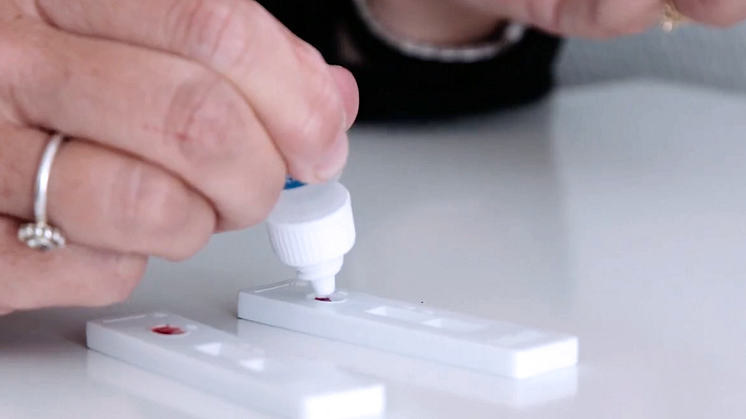
Press release -
First COVID-19 study results confirm correlation between frequent patient contact and antibodies
The research project has been approved by The Danish National Committee on Health Research Ethics in cooperation with Professors Henrik Ullum and Kasper Karmark Iversen from the Capital Region of Denmark. The research project is sponsored by the Lundbeck Foundation.
The primary object of the project is to monitor the spreading of the virus across employee groups and geographies. The study is based on voluntary participation of Falck employees in Denmark and Sweden.
The participants of the research project will do a home test for antibodies and answer a questionnaire among other things about the number of daily patient and client contacts (0, 1-5, 6-10, 11-20 and 20+). The participants are divided into ambulance staff, healthcare staff (primarily physiotherapy and psychological consultations), office staff, firefighters and roadside assistance staff. This approach to the study is based on the hypothesis that patient contact is a decisive factor for the frequency of COVID-19 infections, and therefore it is necessary to verify this information when comparing the development in the spreading of the virus across geographies. The questionnaire also considers the variation in patient contact within each staff group over time.
The ambulance staff in both Denmark and Sweden is well represented (333 and 602 participants, respectively), whereas the number of healthcare staff members in Sweden is considerably higher (500 against 116 in Denmark). For firefighters and roadside assistance staff the numbers in Denmark are much higher (783 against only 44 in Sweden). Therefore, it is not possible to compare the two country groups before the extent of patient contact has been verified.
Correlation between frequent patient contact and the likelihood of a positive antibody test
The first data from 3,021 participants (1,106 from Sweden and 1,915 from Denmark) confirms the correlation between frequent patient contact and the likelihood of a positive antibody test and thus, the importance of personal protective equipment for exposed employees. Further analyses through the research project is expected to form the basis for optimising the protection of employees. With only few positive antibody tests in Denmark, it is not yet possible to calculate the correlation between patient contact and the frequency of positive antibody tests in the countries separately. Taking into account that the number of participants in the study will increase and the development in the spreading of the virus, it is expected that over the next testing rounds data will provide grounds for establishing a correlation between patient contact and the likelihood of a positive antibody test within separate geographies.
As expected, the total number of participants with a positive antibody test was low with 3.4% in the first round. The numbers show 1.6% in Denmark and 6.6% in Sweden, as mentioned however, the numbers are not comparable.
Study is an opportunity to gain knowledge about how the virus spreads over time
President and CEO Jakob Riis says:
”With its design, the high number of participants geographically distributed and the regular testing, the study is an opportunity for us to gain knowledge of how the virus spreads over time and the risk of infection for employees with a high, daily number of patient contacts. We will publish interim results during the project in order to use the new knowledge as quickly as possible.”
”At Falck, we are very proud of the research project which paves the way for upcoming scientific activities at Falck. The COVID-19 antibody project is an important initiative in our efforts to always work diligently towards the best possible protection for our employees. The fact that the results of the project have societal value is also central, and the support for the project from Falck employees is certainly connected to this.”
The next testing round will begin this week, and the testing continues every second week until the end of 2020.
Read more about the research study here.
About Falck
We care for the well-being of people and excel in saving and improving lives of people in urgent need. This has made Falck an international leader in emergency response and healthcare.
For more than a century, Falck has worked with local and national governments to prevent accidents, diseases and emergency situations, to rescue and assist people in emergencies quickly and competently and to rehabilitate people after illness or injury.
Falck operates in 30 countries and has approximately 30,000 employees.
.

